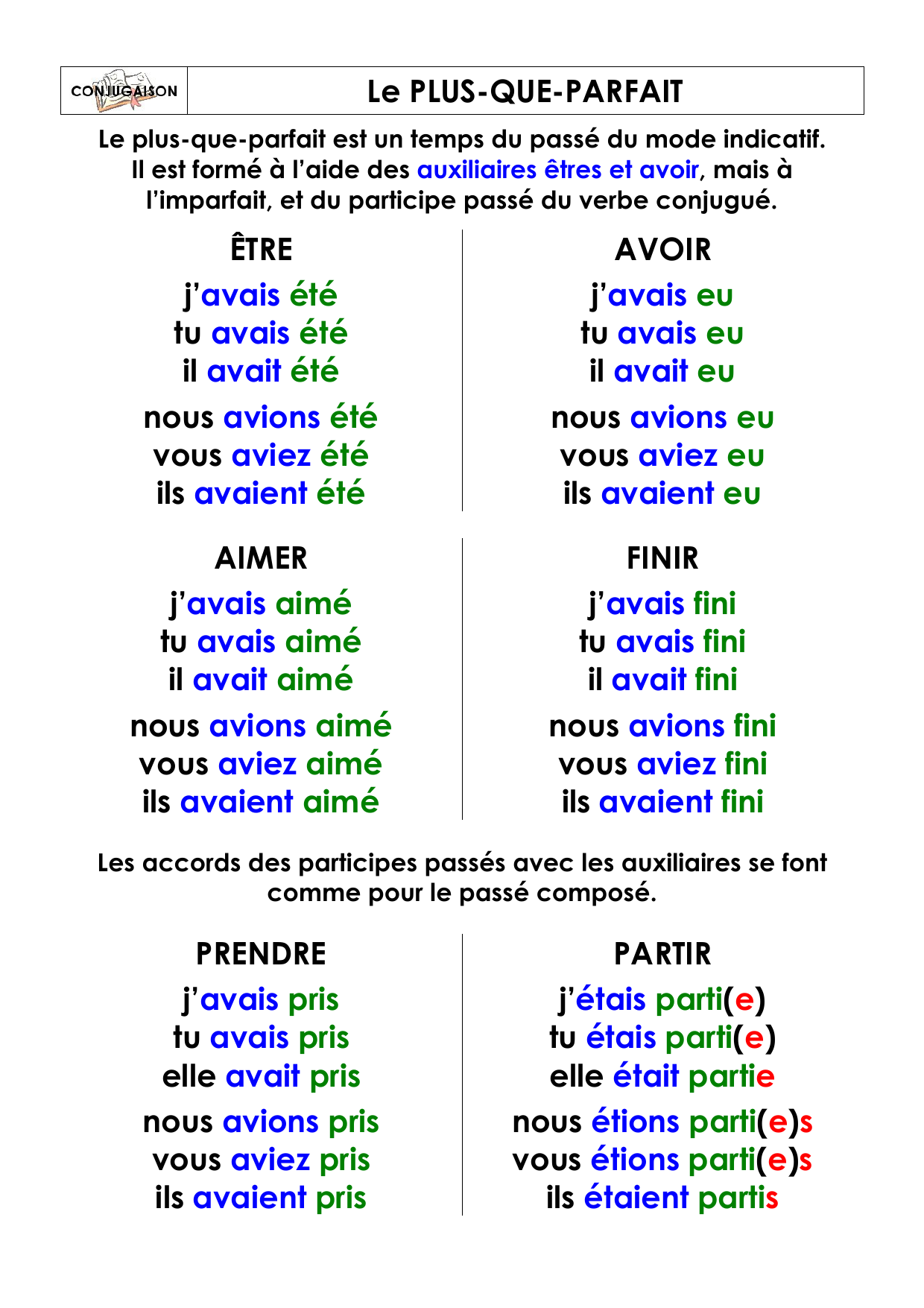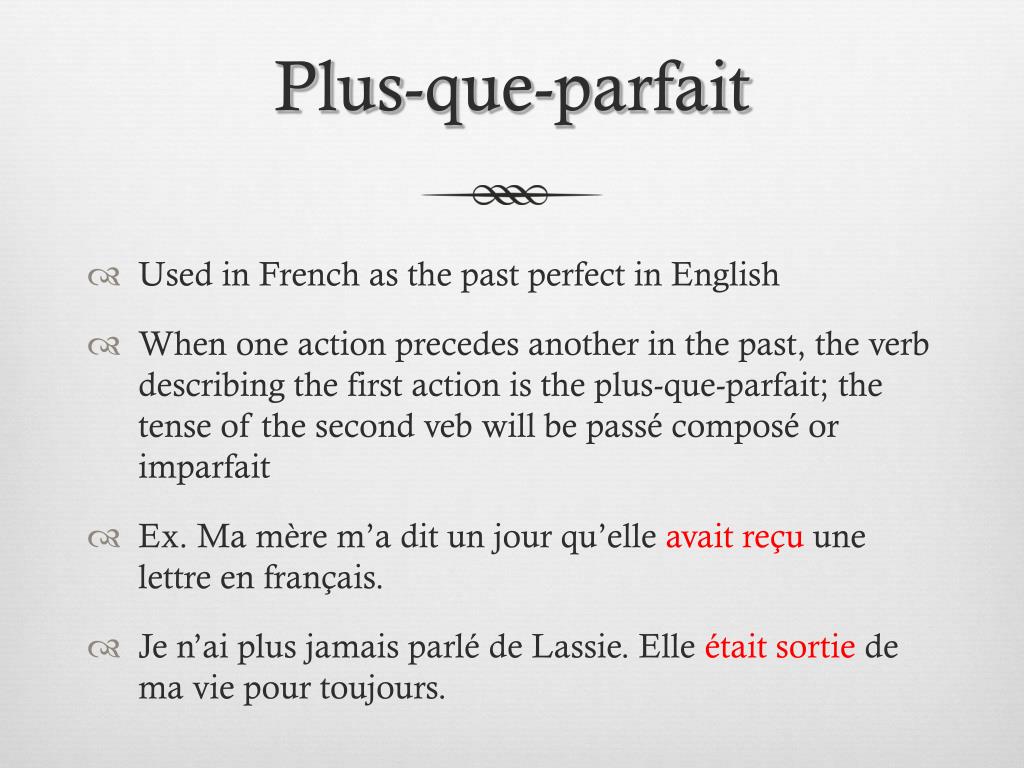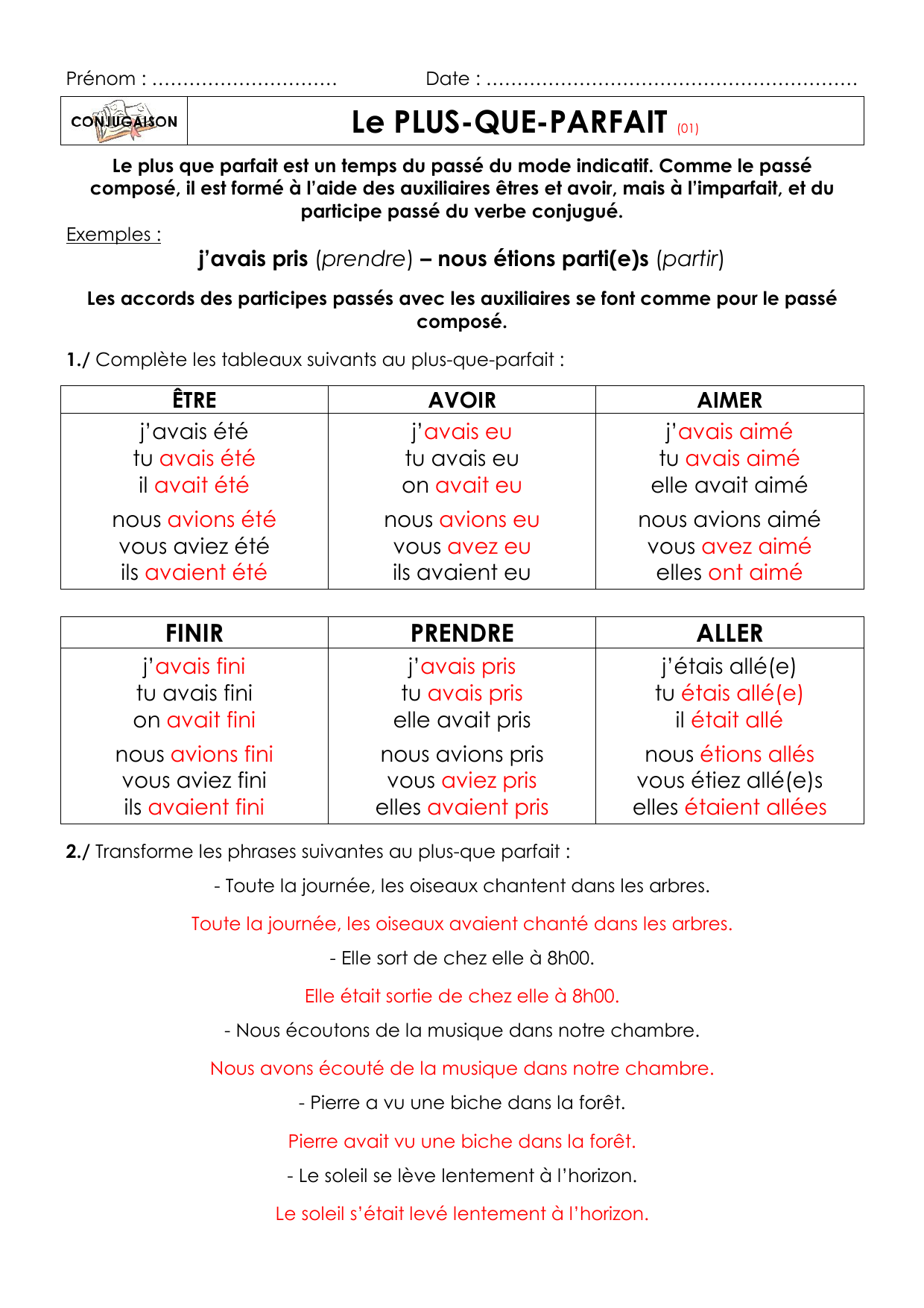

(an action that lasted)Īvant, je faisais du karaté tous les samedi. I.e : Quand j'étais jeune, j'habitais à Lyon. In primary school, French pupils are taught that it is the "temps de la description".

To summarize: plus-que-parfait is something done in the past, translated "had done" and is formed with the imperfect avoir/être and the past participle of the verb.Imparfait : to describe a past action that lasted over time or a repetitive action in the past. If you're not sure which verbs take avoir and être, that's a different question.

First you take the auxiliary verb "avoir" or "être" and put it into the imperfect.Īnd then add the past participle - that's the second bit from the passé composé that you already learned - the "-ed" form of the word Just like English, French uses two words to form the plus-que-parfait. (For grammarians, "perfect" / "parfait" just means "done" - so the PLUperfect is "more-done" - something done before something else in the past.) So the homework had been done before the dog ate it. It describes something that was done before something else. I had written the essay, but the teacher hated it. For example, I had done my homework, but then the dog ate it. "Pluperfect / plus que parfait" is just the "had done" form of the verb. You already know tenses like "past," "future," and "present" in English, and you probably know the "présent," "passé composé," "futur" in French. (Where is the receipt? I need (of) the receipt.) Borrowing a few more examples from this page: "Dont" is a lot like "que," except you'll see a preposition in front (like "de/du/des" or "avec"). Qui is used here, because "it" (the cat) is the subject. (Find the cat that lives in the basement.) Qui is used here, because "he" is the subject. (I'm looking for the artist who is studying in Paris.) Que is used here, because "him" is the object. (Where does the painter whom I saw today live?) Où habite le peintre que j'ai vu aujourd'hui?

(Where does the painter live? I saw him today.) Où habite le peintre? Je l'ai vu aujourd'hui. Que is used here, because "it" (the book) is the object. (I bought the book that my sister wrote.) J'ai acheté le livre que ma sœur a écrit. Basically, "qui" is used to replace the subject of the sentence (which is often a person, but not always), and "que" is used to replace the object of the sentence (which is often a thing, but not always).


 0 kommentar(er)
0 kommentar(er)
